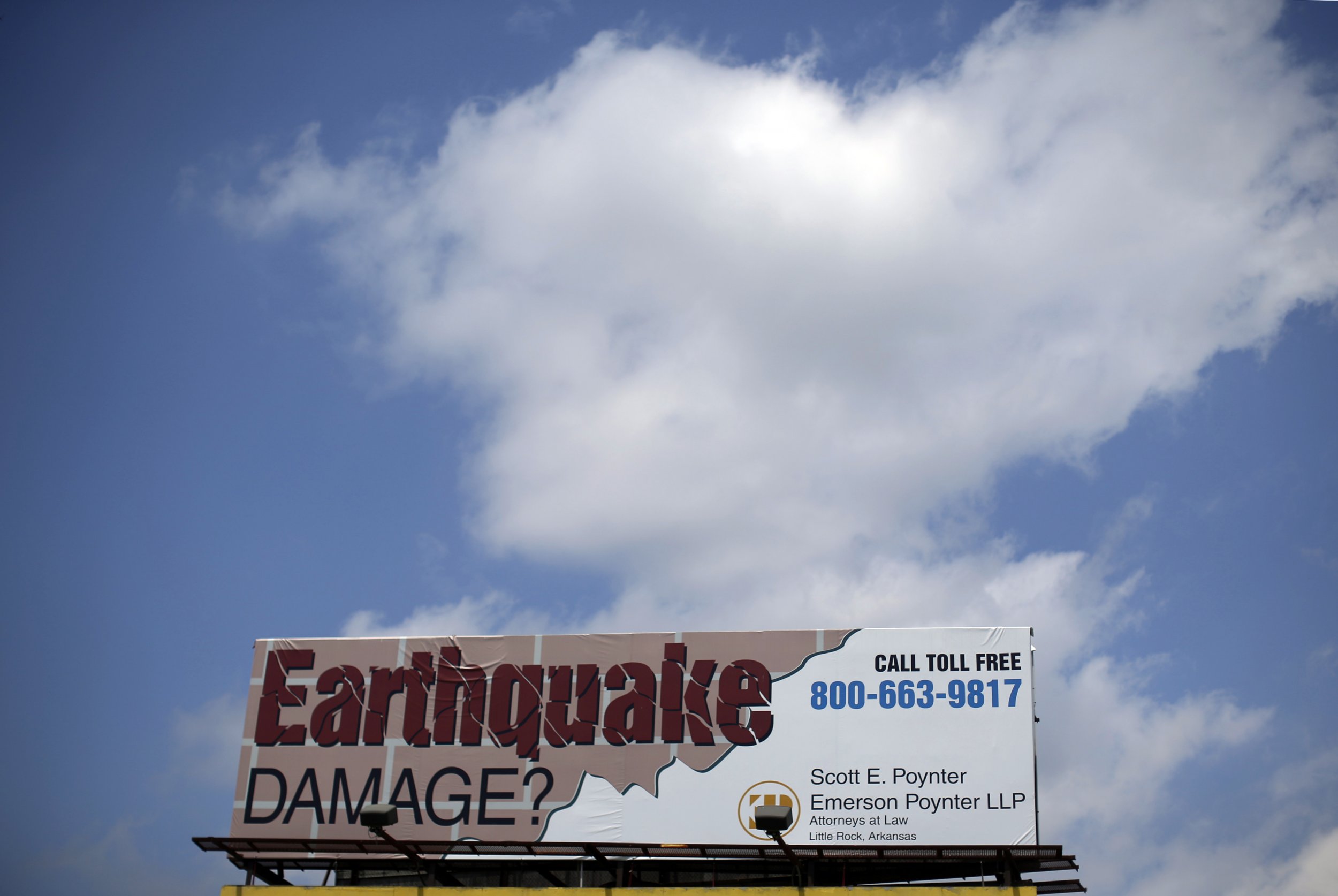
Two things are now clear to the overwhelming majority of earthquake scientists: The first is that Oklahoma is experiencing a dramatic surge in earthquakes never before seen in the state's history. The second is that the oil and gas industry has something to do with it. But an Oklahoma oil CEO reportedly chose to take the matter into his own hands last summer. Continental Resources Chairman Harold Hamm reportedly told a University of Oklahoma dean that he would like to see select scientists studying the connection dismissed from the school, according to emails obtained by Bloomberg News. Hamm is a leading donor to the university.
During a 90-minute meeting last year with Larry Grillot, the dean of the university's Mewbourne College of Earth and Energy, Hamm reportedly got right to the point.
"Mr. Hamm is very upset at some of the earthquake reporting to the point that he would like to see select OGS staff dismissed," Grillot wrote in an email recounting the meeting to colleagues at the university, according to Bloomberg. The College of Earth and Energy also houses the Oklahoma Geological Survey, and Hamm said that he would be "very interested" in participating in a search committee to find a new director for OGS, according to Grillot's email. Hamm also mentioned that he would be "visiting with Governor [Mary] Fallin on the topic of moving the OGS out of the University of Oklahoma," the dean wrote.
University of Oklahoma President David Boren, who sits on the board of directors of Hamm's Continental Resources, told Bloomberg that he was unaware of Hamm's meeting with Grillot, and that nothing has changed at the school as a result.
"The facts speak for themselves," Boren said. "No OGS staff member has been terminated or threatened with termination. No research has been stopped or modified. An independent search for the OGS director has been conducted, and a distinguished graduate of Harvard has been selected. The university has more than once expressed its total commitment to academic freedom in this matter."
A spokesperson for Continental Resources told Bloomberg that the company had no comment.
This is not the first time questions have been raised about industry involvement in the OGS. The OGS was notably slow to publicly acknowledge a link between the industry and the earthquakes, even after federal officials at the U.S. Geological Survey did so. When USGS said in 2012 that a step in the hydraulic fracturing process—the disposal of vast volumes of salty, chemical-laced wastewater by injecting it deep into the ground—was related to the massive spike in Oklahoma earthquakes, OGS responded by criticizing its "rush to judgment."
In March, EnergyWire reported that OGS's reluctance to point fingers may have been due to the industry itself. Austin Holland, an OGS seismologist, was reportedly called into meetings with his boss, Boren, and oil executives, to discuss the link between fracking and quakes. Hamm was among the oilmen in the meetings, and according to a Tulsa petroleum geologist named Bob Jackman, Hamm may have had an influence on Holland's statements on the issue.
Jackman recounted to EnergyWire a conversation with Holland in which he pressed him regarding Oklahoma's earthquakes after a conference in September. Jackman said Holland responded by saying, "You don't understand—Harold Hamm and others will not allow me to say certain things."
Holland himself told EnergyWire that the meetings did not affect the research produced by OGS in any way. "We have the academic freedoms necessary for university employees doing research," he said at the time.
Meanwhile, the USGS's opinion of the 400-fold increase in earthquakes in the state and similar spikes elsewhere in the region has become all the more blunt.
"This rise in seismic activity, especially in the central United States, is not the result of natural processes," reads a USGS statement released in February. "Deep injection of wastewater is the primary cause of the dramatic rise in detected earthquakes and the corresponding increase in seismic hazard in the central U.S."
Uncommon Knowledge
Newsweek is committed to challenging conventional wisdom and finding connections in the search for common ground.
Newsweek is committed to challenging conventional wisdom and finding connections in the search for common ground.
About the writer
Zoë is a senior writer at Newsweek. She covers science, the environment, and human health. She has written for a ... Read more
To read how Newsweek uses AI as a newsroom tool, Click here.








